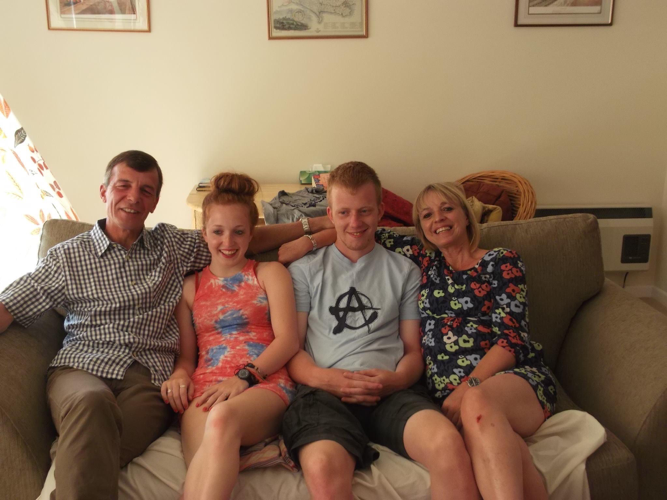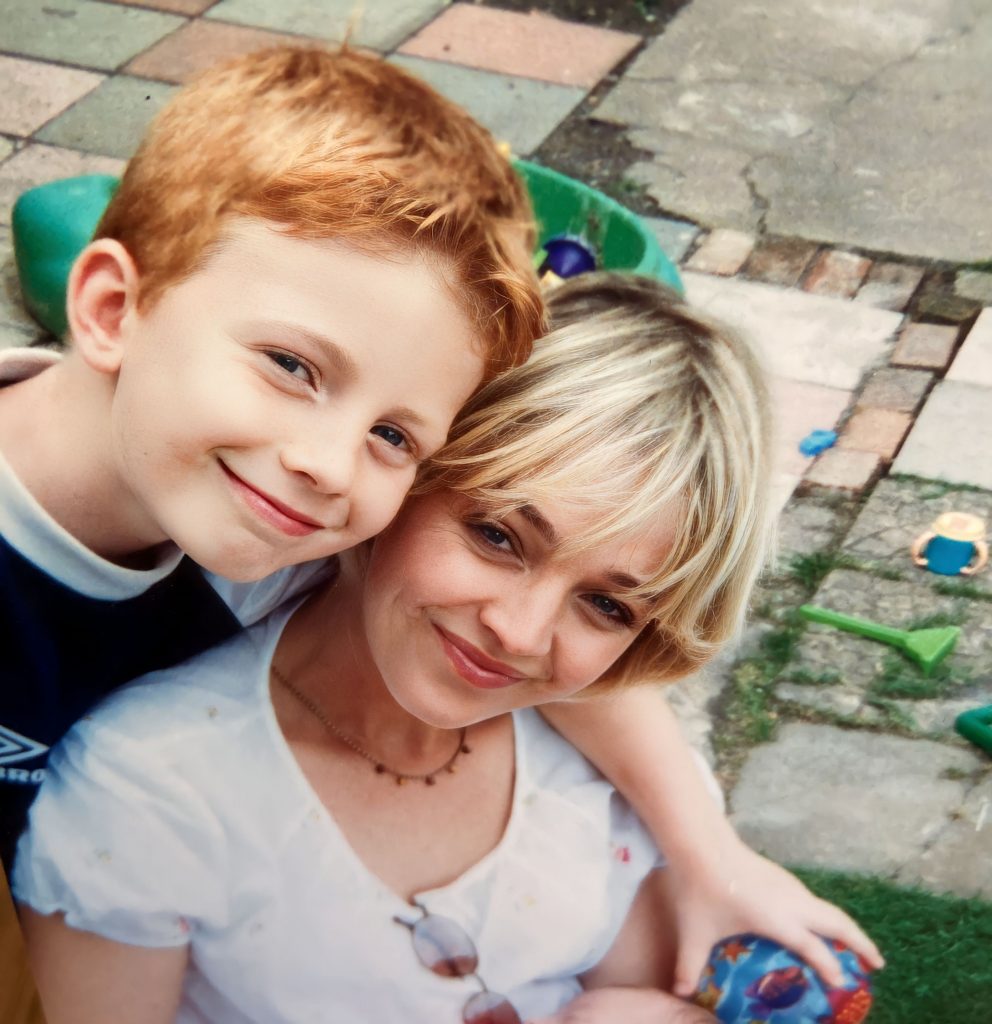“All I wanted to do was make things right for him”.
We know homelessness and many of the routes to it can affect not only the individual, but their friends and family too.
With Mother’s Day approaching we spoke to one of our amazing volunteer’s Alison about her son Rob who, during his young life, spent time sleeping rough.
Can you tell us a little about your son Rob?
Rob was a bonny boy weighing a mighty 9lb when born on the 14th October 1991. He had a regular happy childhood and was an only child until his sister was born in May 1996. Rob had regular contact with his grandparents and wider family. He went to preschool and the local village primary school. As a family we enjoyed holidays, hobbies and quality time together. Nothing in his early childhood would prepare me for what was to come. He enjoyed playing cricket and rugby both locally and at county level. He had a good life mapped out for him. He had good friends, was popular with a wicked sense of humour.
Can you tell us about his experience of drug use, addiction and homelessness?
It was when Rob was going into year 11 at secondary school that I began to notice significant changes in his behaviour and this is the time, on reflection, that he began to experiment with drugs, in particular cannabis but then leading onto other illicit substances and alcohol. He later dropped out of sixth form college, even though he was highly intelligent and creative. For the remaining years, before he died at 25, his lifestyle and behaviour became chaotic, dark and unpredictable. He was getting into trouble with the police too. He did manage to hold down various part time jobs and even went travelling in India, but he became very paranoid. He spent time living at a local hostel after it became very difficult for us to cope. Prior to that, and after, he he came back home, he would disappear for days sleeping rough. I didn’t realise at the time, but he was experiencing psychotic symptoms and was eventually diagnosed with paranoid schizophrenia at the age of 23. This, mixed with addiction issues, is a toxic combination commonly known as dual diagnosis. Prior to understanding his diagnosis, I wondered whether this was rebellious stage he was going through. but it became apparent that it was very much more serious and complex than that. He went on to live in supported housing.
How did you feel during this period?
Stressed, anxious worried, frantic, hopeless, despairing, unsettled. I was so very worried about Rob all the time. All I wanted to do was make things right for him.
Can you share a little about when Rob died?
Rob died on 3rd March 2017 through misadventure and misuse of drugs and alcohol. His young chaotic life was over. Years of turmoil had led to this. The dreaded thoughts I had about his future had come come true. Part of me felt relief for him, he hated himself and what he had become. Now it was all over, he didn’t have to suffer anymore.
Why did you start volunteering with Jimmy’s?
I started volunteering at Jimmy’s many years ago at the start of Rob’s journey because I wanted to find out what support and options there were for young people at risk of becoming homeless. I also wanted to meet and understand people with similar lifestyles to Rob, as he was clearly at risk too, and we were struggling to cope as a family with the chaos in his life.
What has volunteering with Jimmy’s brought to your life?
I have learned to have great empathy and understanding. It has certainly made me less judgemental and more accommodating in my thoughts and opinions around addiction, mental health and homelessness and how these issue are intrinsically linked. I am happy to give my time supporting Jimmy’s and the residents.
Rob left this legacy for me, and I am eternally grateful to him for that. I just wish I had understood more about all of this during his chaotic years.
What would you say to someone whose family member or child is currently experiencing homelessness and other similar challenges?
Make sure that they know that you love them. Don’t judge them. Differentiate between the person and their behaviour or situation they are in. Rob knew he was loved. Seek help and advice and get to know the services that are available and work with them to agree support. Offer practical help where you can. Have some understanding that the person really doesn’t want to be in a situation like this.
Whilst Jimmy’s wasn’t involved in supporting Rob we know there are many people like him who need our help, and we want to make sure we are there for them. Jimmy’s work with each person to provide options, tools and skills to support them on their journey, developing a tailored pathway to independence. Through our many years of experience of working with vulnerable individuals we recognise the need for everyone to be treated in a confidential manner and with respect, compassion, and empathy.
Want to support Jimmy’s and the people we help? Please donate here.


